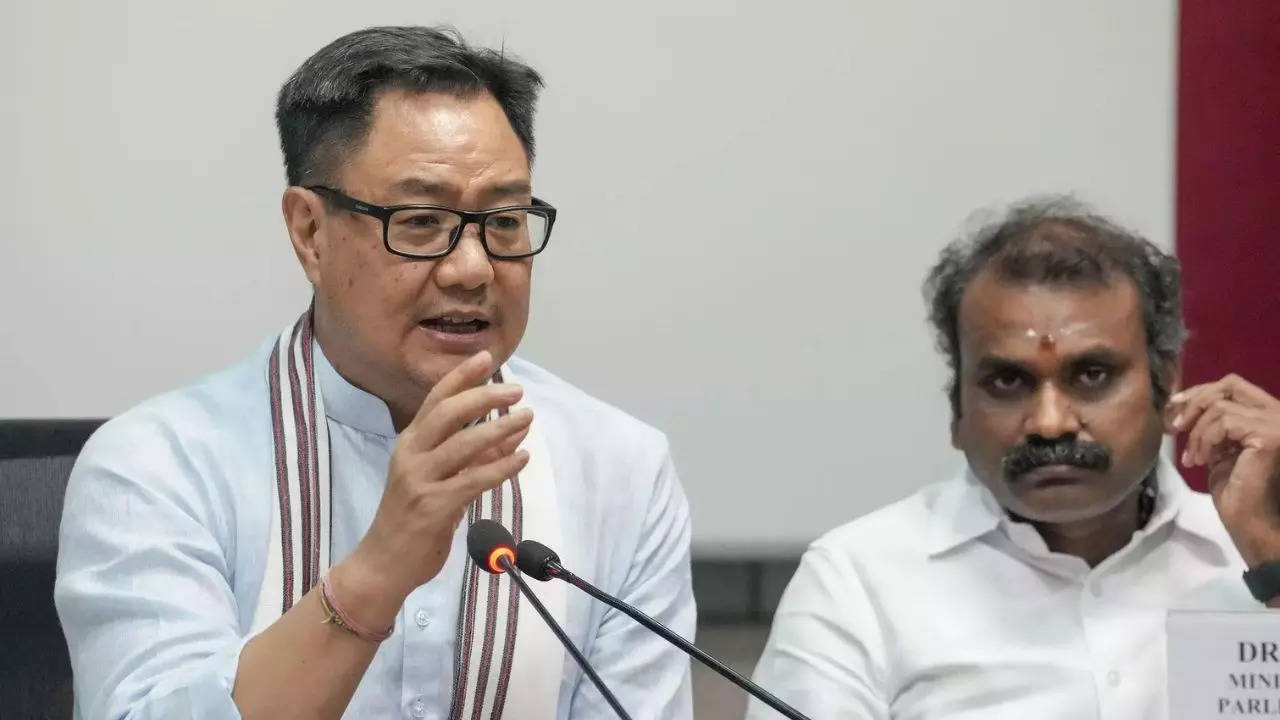Rijiju reviews infra projects in Arunachal, calls for expediting projects under ‘Buddhist Development Plan’ – Times of India

NEW DELHI: The ‘Buddhist Development Plan’ launched in March just before the code of conduct for the Lok Sabha Polls were announced was in focus at a review meeting held by minister for minority affairs Kiren Rijiju on Tuesday where he reviewed the status and the roadmap for expediting infrastructure projects approved under Pradhan Mantri Jan Vikas Karyakram (PMJVK) of the ministry for Arunachal Pradesh. Arunachal chief minister Pema Khandu was present during the review.
Rijiju also announced the release of financial assistance of Rs 35 crores as the central share to the state for ongoing projects under the scheme that covers minority-dominated districts and announced two new projects, one each for Kumchaikha of Diyun Circle and Pakpu Maling.
Additionally, the minister reviewed the roadmap for early execution of 10 development projects approved for the state under the ‘Buddhist Development Plan’ to reach the Buddhist community in far flung border areas of Himachal Pradesh, Uttarakhand, Arunachal Pradesh, Sikkim and Ladakh.
The prime objective behind BDP, according to the govt, is to secularize traditional theological education with an additional provision of modern education and the professional, vocational and skill development courses for the young Buddhist population in these areas. Under BDP the aim is to converge various ongoing schemes of the ministry such as PMJVK and those linked to scholarships and skills among others.
In March, then minority affairs minister Smriti Irani had laid the foundation stone for 38 projects with an estimated cost of Rs 225 crores approved under Buddhist Development Plan under PMJVK in Himachal Pradesh, Uttarakhand, Arunachal Pradesh, Sikkim & Ladakh.
Infrastructure developments like community halls and support to bolster education and health infrastructure can be undertaken under the PMJVK – a pan India scheme, in an area if 25% of the population within 15 kilometres of the project site are from minority communities which include Muslims, Sikhs, Christians, Buddhists, Jains and Zorastrians (Parsis).


